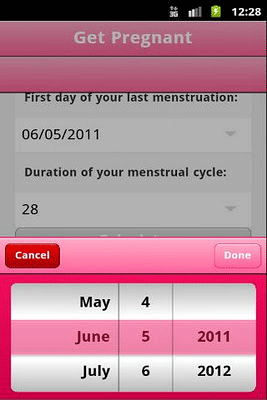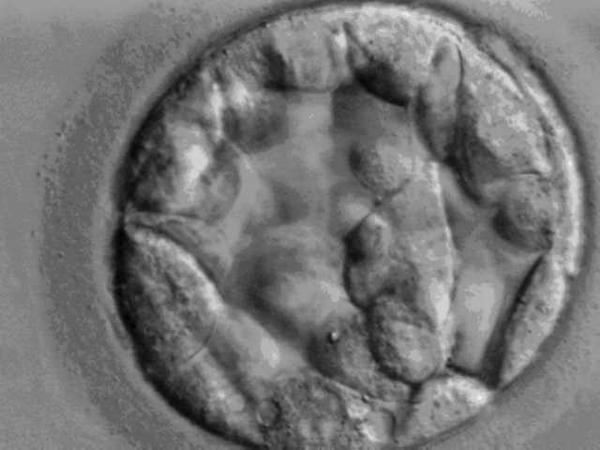Women are mostly unaware about the concept of ovulation. The only relation with this concept is through the monthly menstrual cycle. Predicting ovulation is very important in determining the fertile period. Sexual intercourse during the fertile phase results in pregnancy. So the concept of ovulation is very important, when planning a pregnancy. Read on to know more.Let us first understand in simple terms the concept of ovulation. The ovary of the female releases a mature egg that travels down the fallopian tube. It waits there to be fertilised by the sperm that swims across to reach it. As they meet the egg gets fertilised and it settles down in the uterus that is thickened by an inner lining of blood tissue. If conception and fertilisation does not happen this lining is shed in the form of menstrual blood. So the process of the release of the egg is called ovulation and the cycle whereby it gets fertilised or not defines the ovulation cycle. In this articleOvulation Cycle FactsHow to Track Ovulation?The Two Parts of Ovulation CycleOvulation Cycle FactsIt is important and interesting to know certain facts on ovulation. After the egg is released from the ovary, it stays alive for around 12 to 24 hours.In each ovulation cycle, usually just a single egg is released.Ovulation is not accompanied by menstruation. But in some women it is natural to experience some spotting during this period.Every woman is born with countless millions of immature eggs that stay put waiting for the ovulation cycle to commence. There are a host of physiological and psychological factors that can affect ovulation like certain diseases, upheaval of normal daily routine and of course stress. The fertilised egg gets implanted in the uterus usually after six to twelve days following ovulation. Some women experience an aching pain in their abdomen or ovaries during ovulation. This is termed as ‘Mittelschmerz’ (German word) that means ‘middle pain’. There can be menstruation even if ovulation did not take place and also there can be ovulation even if you have missed your periods. How to Track Ovulation?The monthly cycle of the woman is counted from the first day of the menstruation to the first day of her next menstruation. On an average the count is 28 to 32 days, but there can be variations of longer or shorter cycles. The ovulation period can be tracked by counting twelve to sixteen days from the beginning of the next menstrual period. Ovulation usually occurs anywhere between day 11 and day 21 of the monthly cycle. This is also known as the fertile days of the month. If unprotected sexual intercourse during the fertile days, the probability of conception increases. Here it is important to note that ovulation might occur on a different date each month and also at different time during a cycle. The Two Parts of Ovulation CycleFollicular Phase – This is the first phase that commences from the last day of the previous menstrual period, and continues till ovulation occurs. This is a very relative period as it can differ in each woman and can be anywhere between seven days to forty days. Luteal Phase – This is the second half that begins from the date of ovulation till the first day of the next period. It usually comprises of 12-16 days from the date of ovulation and has a comparatively more precise timeline. Ovulation can be tracked by several other methods that fall under fertility awareness. You can use a basal thermometer that tracks the daily morning body temperature. On the day before ovulation occurs, the temperature will show a higher reading. You can also track the ovulation period by noting the texture or the cervical mucus that turns thicker resembling egg whites, during the ovulation phase. Alternatively an ovulation kit or fertility monitor can help you calculate the ovulation period.
Women are mostly unaware about the concept of ovulation. The only relation with this concept is through the monthly menstrual cycle. Predicting ovulation is very important in determining the fertile period. Sexual intercourse during the fertile phase results in pregnancy. So the concept of ovulation is very important, when planning a pregnancy. Read on to know more.Let us first understand in simple terms the concept of
ovulation. The ovary of the female releases a mature egg that travels down the fallopian tube. It waits there to be fertilised by the sperm that swims across to reach it. As they meet the egg gets fertilised and it settles down in the uterus that is thickened by an inner lining of blood tissue.
If conception and
fertilisation does not happen this lining is shed in the form of menstrual blood. So the process of the release of the egg is called ovulation and the cycle whereby it gets fertilised or not defines the ovulation cycle.
Ovulation Cycle Facts
It is important and interesting to know certain facts on ovulation.
- After the egg is released from the ovary, it stays alive for around 12 to 24 hours.
- In each ovulation cycle, usually just a single egg is released.
- Ovulation is not accompanied by menstruation. But in some women it is natural to experience some spotting during this period.
- Every woman is born with countless millions of immature eggs that stay put waiting for the ovulation cycle to commence.
- There are a host of physiological and psychological factors that can affect ovulation like certain diseases, upheaval of normal daily routine and of course stress.
- The fertilised egg gets implanted in the uterus usually after six to twelve days following ovulation.
- Some women experience an aching pain in their abdomen or ovaries during ovulation. This is termed as ‘Mittelschmerz’ (German word) that means ‘middle pain’.
- There can be menstruation even if ovulation did not take place and also there can be ovulation even if you have missed your periods.
How to Track Ovulation?
The monthly cycle of the woman is counted from the first day of the
menstruation to the first day of her next menstruation. On an average the count is 28 to 32 days, but there can be variations of longer or shorter cycles. The ovulation period can be tracked by counting twelve to sixteen days from the beginning of the next menstrual period.
Ovulation usually occurs anywhere between day 11 and day 21 of the monthly cycle. This is also known as the fertile days of the month. If unprotected
sexual intercourse during the fertile days, the probability of conception increases. Here it is important to note that ovulation might occur on a different date each month and also at different time during a cycle.
The Two Parts of Ovulation Cycle
- Follicular Phase – This is the first phase that commences from the last day of the previous menstrual period, and continues till ovulation occurs. This is a very relative period as it can differ in each woman and can be anywhere between seven days to forty days.
- Luteal Phase – This is the second half that begins from the date of ovulation till the first day of the next period. It usually comprises of 12-16 days from the date of ovulation and has a comparatively more precise timeline.
Ovulation can be tracked by several other methods that fall under
fertility awareness. You can use a basal thermometer that tracks the daily morning body temperature. On the day before ovulation occurs, the temperature will show a higher reading.
You can also track the ovulation period by noting the texture or the cervical mucus that turns thicker resembling egg whites, during the ovulation phase. Alternatively an ovulation kit or fertility monitor can help you calculate the ovulation period.

































